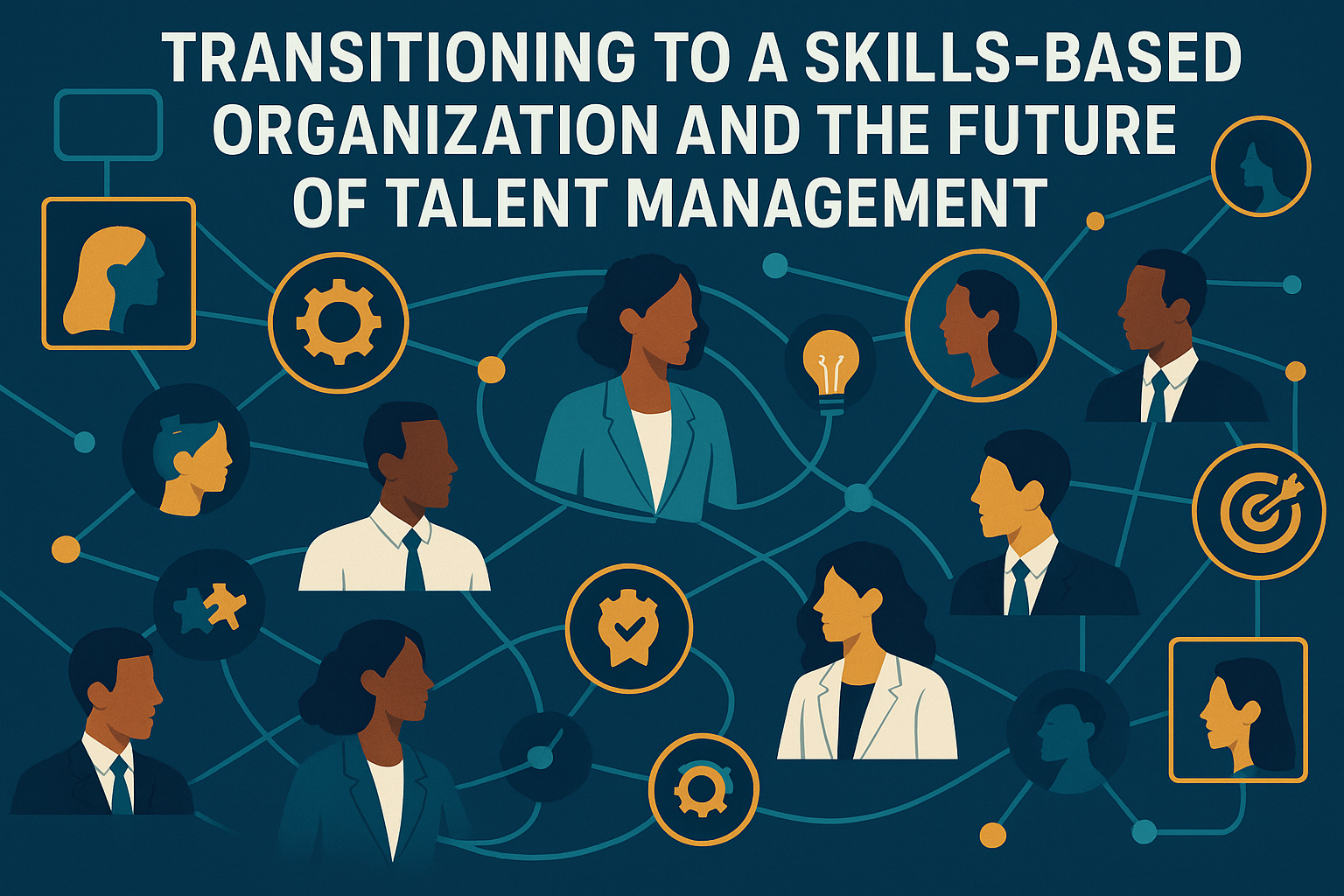سلة التسوق الخاصة بك فارغة
هل لديك حساب بالفعل؟ تسجيل الدخول للتحقق بشكل أسرع.
هل لديك حساب بالفعل؟ تسجيل الدخول للتحقق بشكل أسرع.

The traditional organizational structure built around rigid job titles and hierarchical career ladders is rapidly becoming obsolete. Forward-thinking companies are embracing a transformative approach that prioritizes skills over titles, capabilities over credentials, and agility over adherence to outdated organizational charts. This shift toward skills-based organizations represents one of the most significant evolutions in talent management, fundamentally changing how businesses identify, develop, deploy, and retain their workforce.
A skills-based organization operates on the principle that what employees can do matters more than what their job descriptions say they should do. Rather than confining people to narrowly defined roles, this approach recognizes that every employee possesses a unique portfolio of skills that can be leveraged across multiple projects, teams, and initiatives. This fluidity allows organizations to respond more dynamically to changing business needs while simultaneously providing employees with richer, more varied career experiences.
The traditional model assumed relatively stable job requirements that changed slowly over time. However, today's business environment evolves at unprecedented speed, with new technologies and market disruptions constantly reshaping what organizations need from their people. A skills-based approach acknowledges this reality by focusing on fundamental capabilities that drive success rather than static job descriptions.
One of the most powerful benefits of transitioning to a skills-based organization is the breakdown of traditional departmental silos that restrict collaboration and limit innovation. When organizations understand the full spectrum of skills their employees possess, they can assemble cross-functional teams based on the specific capabilities needed for each project rather than simply pulling from established departmental boundaries.

An employee hired as a financial analyst might possess exceptional data visualization skills that would benefit the marketing team. In a traditional organization, these skills might remain forever untapped. In a skills-based organization, integrated systems identify this capability match and facilitate opportunities for the analyst to contribute their expertise to marketing initiatives, enriching both their own development and organizational effectiveness.
Successfully transitioning to a skills-based organization requires sophisticated technological infrastructure that can capture, analyze, and match skills across the entire workforce. Modern integrated HR platforms maintain comprehensive skills inventories that go far beyond basic resume information. These systems continuously update as employees complete training programs, work on diverse projects, and demonstrate new capabilities in their daily work.
Seamless integration across business platforms enables these systems to draw insights from multiple sources. Project management tools reveal collaboration and leadership skills, while learning management systems track technical competencies. By synthesizing information from various touchpoints, organizations gain a holistic understanding of their talent landscape that would be impossible to achieve through manual processes.
Consider how a skills-based organization handles project staffing for a critical digital transformation initiative. The company needs to implement a new customer relationship management system that will integrate with existing platforms and require comprehensive change management across the organization.

In a traditional organization, the project manager would request specific headcount from IT, operations, and training departments based on job titles. This might result in a functional team, but not necessarily the optimal combination of skills for this specific initiative.
In the skills-based organization, the integrated HR platform analyzes the entire workforce to identify employees possessing needed capabilities—CRM systems, API integration, process mapping, change management, stakeholder communication, and training design—regardless of their current job titles or departments.
The resulting team includes a marketing operations specialist with extensive CRM experience, a financial analyst with API integration skills developed through online courses, an executive assistant with exceptional stakeholder communication abilities, and a sales representative who completed change management certification. This unconventional team composition would never emerge from traditional departmental staffing approaches.
Throughout the project, the platform tracks skill application and development. The system identifies skill gaps that emerge during implementation and recommends targeted learning resources or suggests bringing in additional team members with complementary capabilities. As the project progresses, all participants' skills profiles update automatically, making their enhanced capabilities visible for future opportunities.
Upon project completion, team members return to their primary roles enriched with new experiences and expanded skills. The marketing specialist has deepened their technical knowledge, the financial analyst has gained change management experience, and the executive assistant has developed process redesign capabilities. These enhanced skill sets make each employee more valuable and better positioned for future opportunities.
Skills-based organizations revolutionize career development by replacing linear career ladders with dynamic career lattices. Employees advance by acquiring new skills and taking on increasing responsibility rather than simply climbing a predetermined hierarchy. This approach provides far more flexibility and personalization, allowing individuals to craft career paths that align with their unique interests and strengths.

Integrated systems support this transformation by providing employees with visibility into skill requirements for various opportunities throughout the organization and personalized development recommendations. Rather than waiting for annual performance reviews, employees receive ongoing guidance about how to position themselves for roles and projects they find meaningful.
As business environments become increasingly volatile, organizational agility becomes paramount to survival and success. Skills-based organizations can pivot more quickly when market conditions change, mobilize talent rapidly for emerging opportunities, and innovate more effectively by combining diverse perspectives and capabilities. These advantages translate directly into competitive differentiation and sustained performance.
The transition to a skills-based organization represents a fundamental reimagining of how companies leverage their most valuable asset: their people. By focusing on capabilities rather than titles and enabling fluid deployment of talent, companies create more resilient, adaptable, and human-centered workplaces positioned to thrive in whatever future emerges.
0 تعليقات